Dungeons & Dragons: Honor Among Thieves is a charming fantasy comedy that is somewhat less interested in the dense lore of its source material than it is in replicating the experience of a fun time enjoying the classic role-playing game.
From the moment that it became clear that Honor Among Thieves would be an outright comedy, there was a palpable unease among certain sets of fans. Alex Meehan worried that the adaptation would “throw away its lore, worldbuilding and sincerity to be considered cool.” Joshua Kristian McCoy opined that the film didn’t “seem to match the tone of those novels or the extremely serious world-building of the lore books.”
It is possible to be cynical about the decision to frame Honor Among Thieves as a comedy. In some ways, it feels like a calculated choice that reflects the awkward relationship that mainstream American audiences have with traditional fantasy, outside of exceptions like The Lord of the Rings and Harry Potter. Even promoting The Lord of the Rings, director Peter Jackson had to concede that “fantasy is the one cinematic genre that’s never been done especially well.”
While children of the 1980s may fondly recall the wave of mainstream fantasy epics like Highlander or The Adventures of Baron Munchausen, the truth is that very few of those movies actually connected with contemporary audiences. Promoting Willow, George Lucas openly acknowledged, “The fantasy genre has been spectacularly unsuccessful, including Krull, Legend, Dragonslayer and Labyrinth. Only The Dark Crystal was relatively successful.”
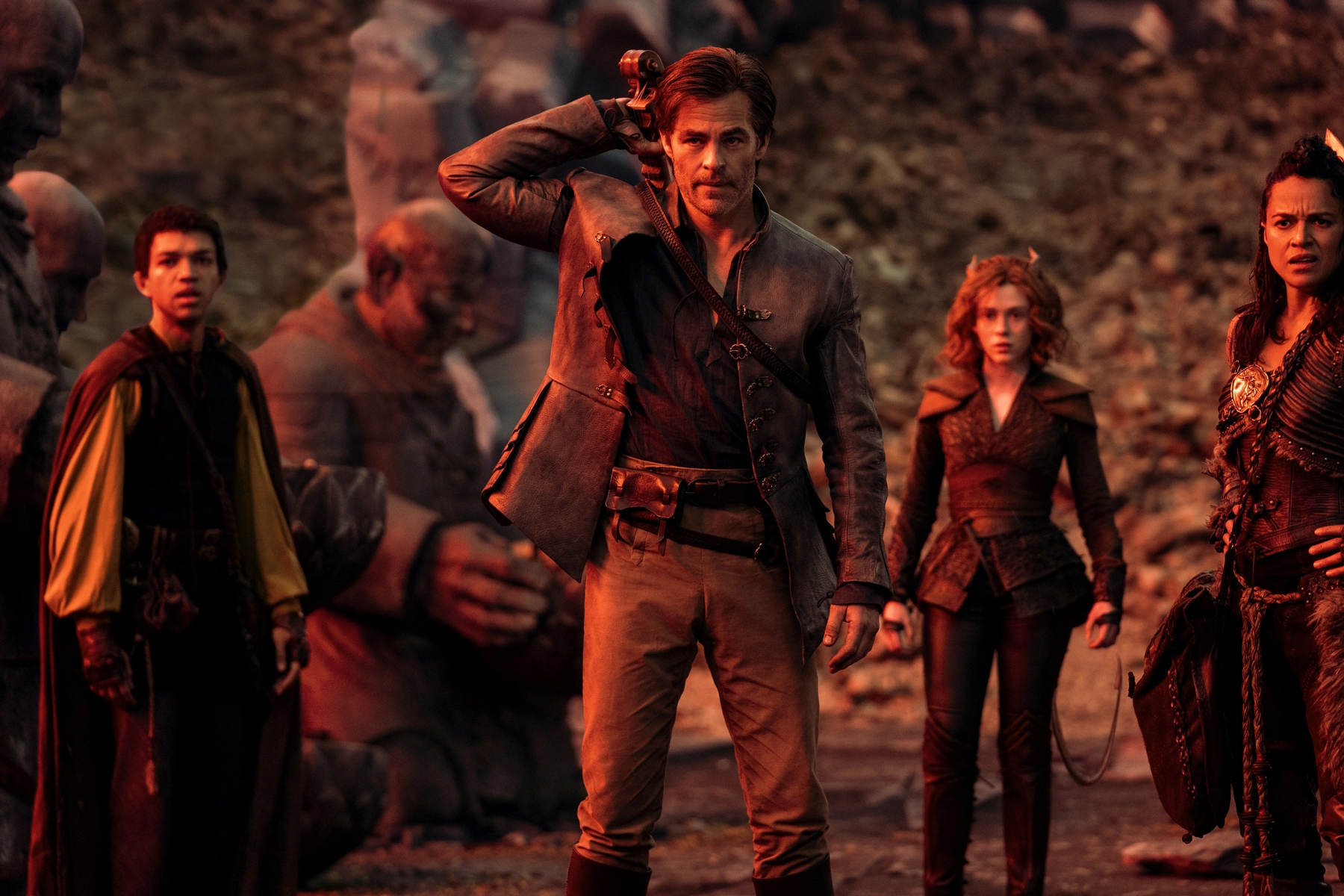
Allowing for rare successes like the Twilight saga, Hollywood’s attempts to replicate the success of The Lord of the Rings or Harry Potter led to a string of high-profile failures: The Mortal Instruments, City of Ember, The Golden Compass, Mortal Engines, Percy Jackson, Immortals, A Wrinkle in Time, and Artemis Fowl. While audiences clearly loved Middle-earth and Hogwarts, that love never translated to an enthusiastic embrace of the wider fantasy genre.
Game of Thrones succeeded on television, but that show was notable for its subversion of the conventional tropes of those stories. Hollywood’s search for “the next Game of Thrones” led to a number of fantasy television shows that failed to really break out, including The Wheel of Time and His Dark Materials. The trend even extended to streaming revivals of those 1980s fantasy films, such as Willow and The Dark Crystal: Age of Resistance, which were canceled after a single season.
From a studio perspective, a theatrical adaptation of Dungeons & Dragons is a particularly risky proposition. There was an infamous failed adaptation of the game in 2000, with Roger Ebert observing that “(t)he plot does not defy description, but it discourages it” and Geoff Pevere complaining about a “wheezy quest story steeped in hobbity gibberish and second-hand Star Wars costumery.” The film’s box office performance mirrored the critical sentiment.
More than that, there was the performance of Duncan Jones’ Warcraft, a movie earnestly and heavily steeped within the mythology of the role-playing game World of Warcraft. There are many problems with Jones’ adaptation, but reviewers returned time and again to the film’s self-importance. There was a steady stream of complaints about the “reams of expository dialogue,” “the self-serious mythology,” and the “forced gravitas” of it all.
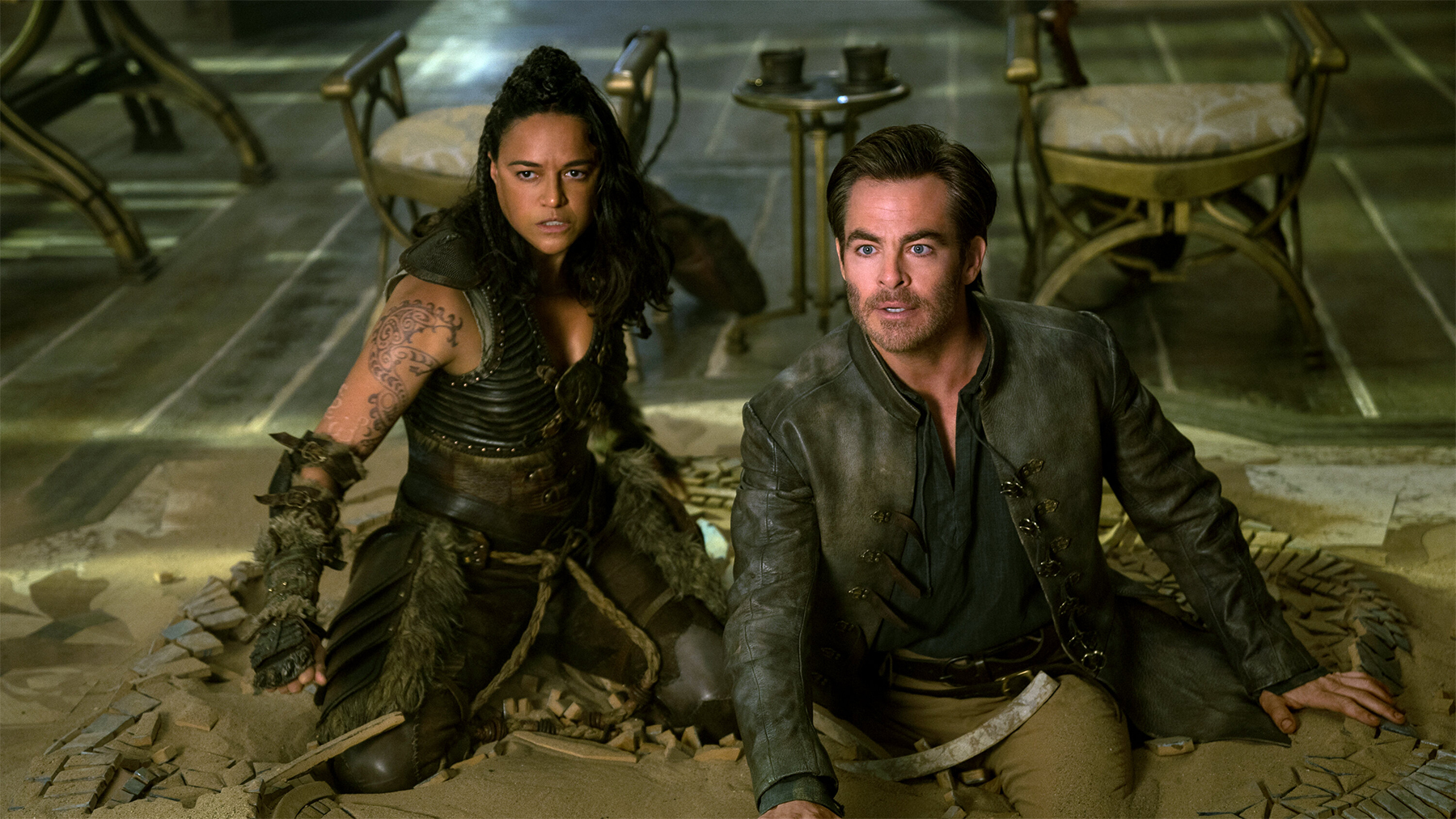
As such, the choice to present Honor Among Thieves as a comedy that doesn’t take itself entirely seriously can feel like a decision made in response to the realities of the market. After all, there is a broader sense that modern blockbusters, as typified by the Marvel Cinematic Universe, lean far too heavily (and too frequently) on self-aware irony in an attempt to preempt any potential criticism of self-seriousness. These movies aren’t just in on the joke; they are racing to make the joke first.
As such, there are reasons to be skeptical of the decision to produce Dungeons & Dragons: Honor Among Thieves as a broad comedy rather than a more traditional fantasy. However, these arguments miss the ways in which Dungeon & Dragons lends itself (both structurally and thematically) to an approach heavy on improvisational comedy, as well as the care with which the film is made. There is a lot to be said for the choice to hire John Francis Daley and Jonathan Goldstein as directors.
Daley and Goldstein came to critical attention as the directors of the high-concept comedy Game Night, which was itself a riff on the oft-overlooked David Fincher thriller The Game. Both movies are about characters who find themselves in a situation where the lines between an augmented reality game and actual criminal enterprise begin to blur. Fincher’s movie uses that tension to create a sense of paranoia, while Daley and Goldstein use it as a setup for various punchlines and set pieces.
Crucially, though, Game Night wouldn’t work if Daley and Goldstein weren’t capable of crafting a baseline compelling thriller that could serve as a foundation for their comedy adventure. Game Night has to be able to function as a much more conventional psychological thriller, albeit one that gets frequently derailed and diverted. In order to properly subvert something, a storyteller must fully understand the underlying mechanics at play.
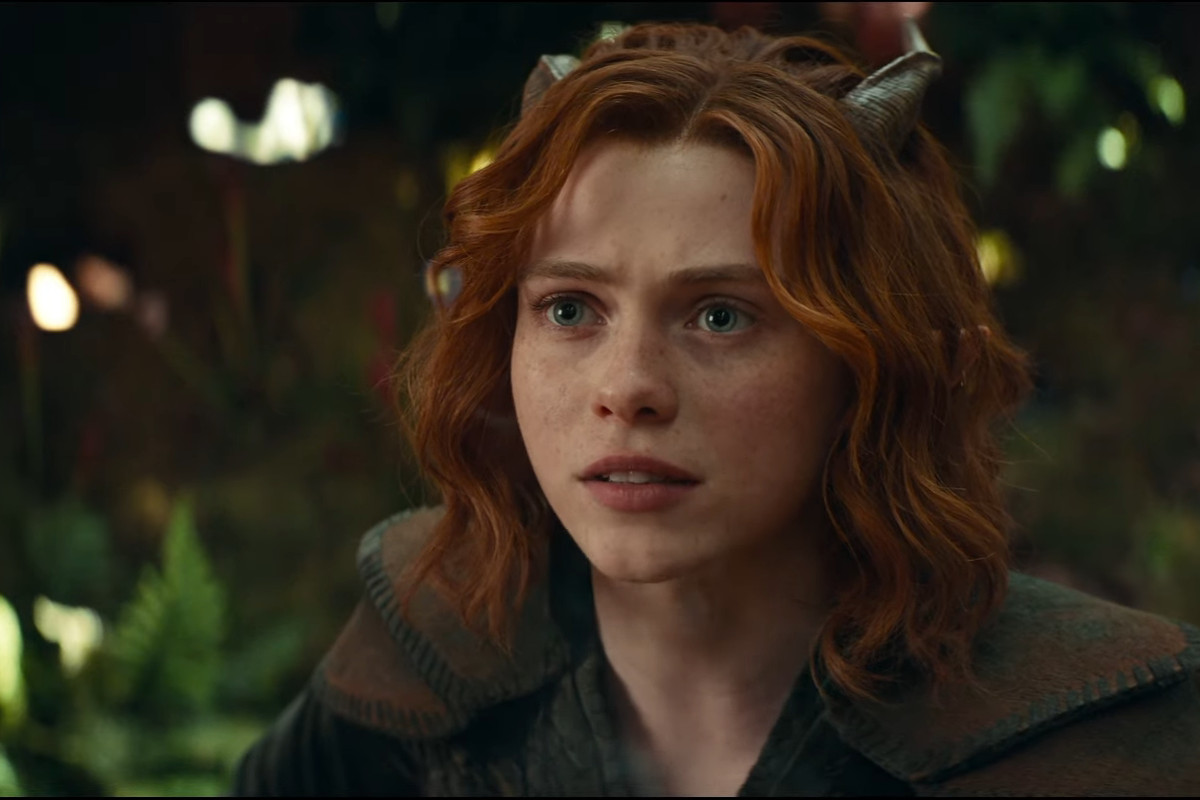
Dungeons & Dragons: Honor Among Thieves works for that reason. Daley and Goldstein understand the basic conventions of the fantasy genre, in a way that allows them to have fun within established frameworks. Their action scenes are coherent. Their framing and composition is clean. Their emotional arcs are clear. There are setups and payoffs. Even stripping out the comedy elements, Honor Among Thieves is a much more satisfying crowd-pleaser than something like Ant-Man and the Wasp: Quantumania.
To pick a specific example, there is a big action set piece in which the lead characters stumble into a dragon’s den. The joke is that the dragon is somewhat out of shape, so its movements are clumsier and it can’t breath fire. It’s a fairly good setup for a punchline, but the actual sequence works because Daley and Goldstein understand how to shoot action. It’s always clear where characters are, and there’s even some clever play involving the physics of the creature and the world around it.
However, it’s also worth acknowledging the reality of the modern theatrical comedy. Much has been written about how the theatrical comedy is effectively dead. While this is undoubtedly an exaggeration, there’s no denying the genre isn’t the powerhouse that it once was. Seth Rogen argues that blockbusters have eaten into the genre’s cachet, contending, “If you’re going to make a big huge comedy, just know that your competition is like Marvel.”
The last truly successful wave of American theatrical comedy was the improvisational approach popularized by directors like Judd Apatow and Adam McKay on projects like Knocked Up and Anchorman. Actors were frequently encouraged to go off-script, to riff on anything that came to mind. As filmmaking migrated from film to digital, and formats like DVD encouraged studios to curate supplementary material like gag reels and deleted scenes, there was no reason for comedians to stick to the script.
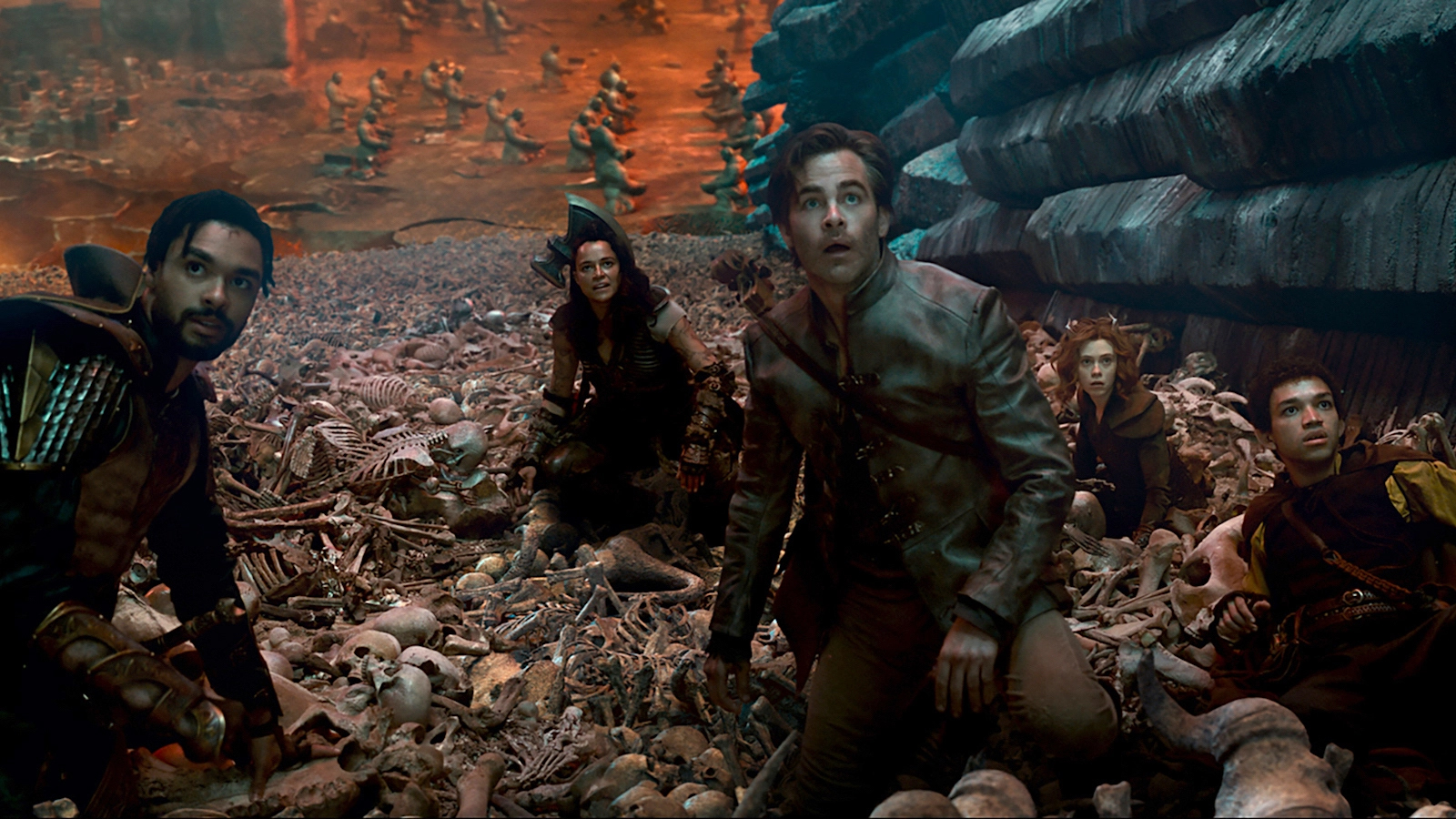
Comedians were encouraged to inhabit their characters and to bounce ideas off one another in a way that could foster spontaneity and inventiveness. “It was very good that Judd was always like, ‘Don’t be too precious with any of this stuff. Try things,’” recalled Seth Rogen. He added, “It’s easy to improvise. It’s hard to improvise in a way that adds to the story, that builds character, and that adds jokes that are actually funny because of the context of where they fall in the film.” Any player of Dungeons & Dragons might empathize.
Of course, this approach didn’t always work. Indeed, David Gordon Green’s Your Highness, starring Danny McBride and James Franco, is an example of it failing specifically within the confines of the fantasy genre. However, in the right hands and with the right material, this approach could lean to genuinely brilliant comedies. Adam McKay was able to construct an entire “lost movie” from material cut out of Anchorman. That movie isn’t very good, but Anchorman is a classic.
It’s a form of creativity that fits surprisingly well with role-playing games, which are “90% improv.” Chris Pine recalls playing Dungeons & Dragons with his nephew, to familiarize himself with the game. “He got my entire family together, who are essentially all actors or former actors, to play the game,” Pine explains. “What’s fun about getting actors to do it is it’s like improv class. You get a name, roll some powers, XYZ name, go on XYZ adventure, and then it’s all playtime. We had an absolute blast.”
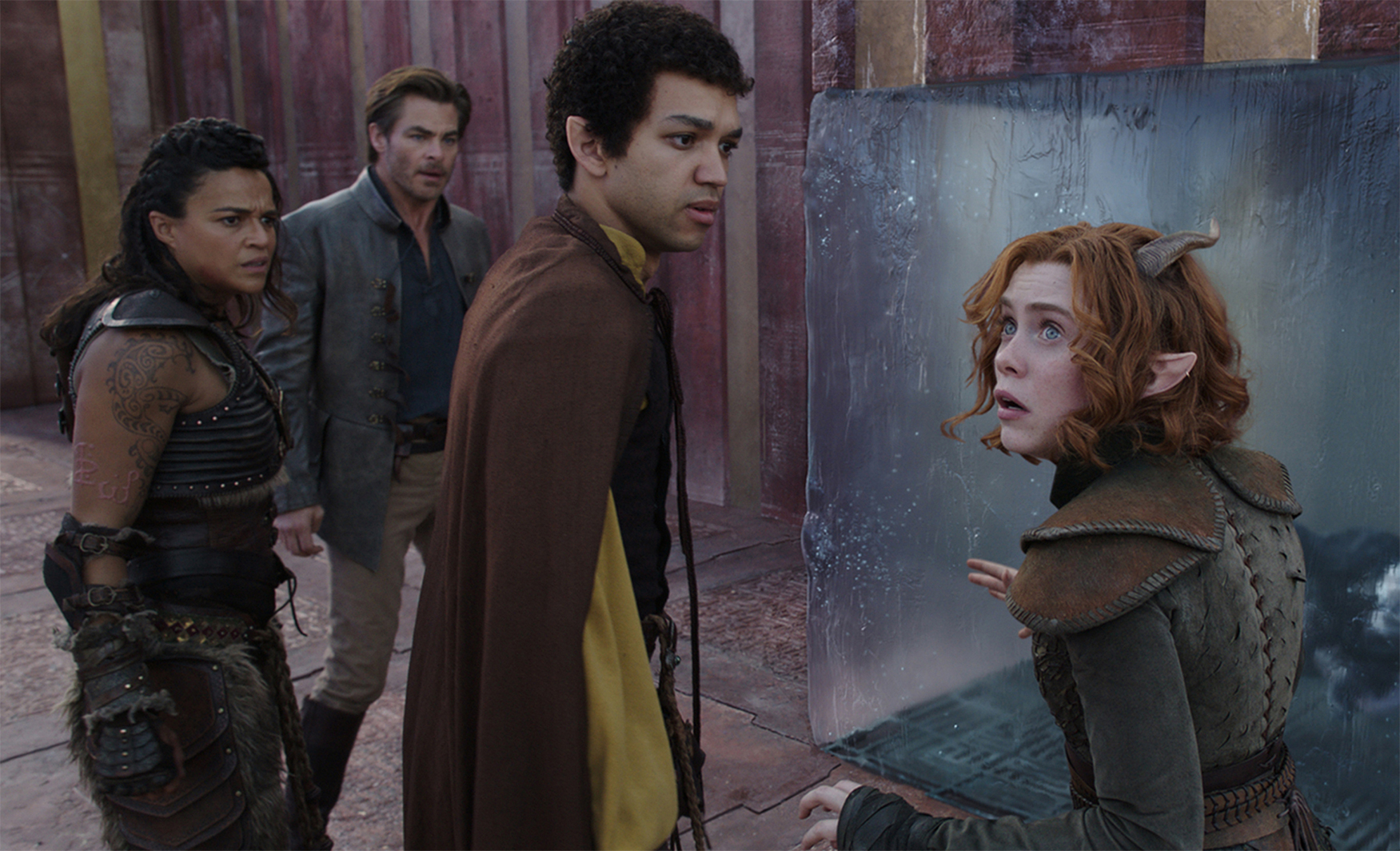
Comedians like Stephen Colbert, Brett Gelman, Martin Starr, Dan Harmon, Felicia Day, and Aubrey Plaza all gravitate to the game. Jon Favreau, the director responsible for Marvel’s embrace of improvisation, explained the game gave him “a really strong background in imagination, storytelling, and understanding how to create tone and a sense of balance.” The game confronts participants with narratives and stories that they can improvise and shape, as both dungeon master and player.
However, Honor Among Thieves goes even further than this, understanding that the big difference between Dungeons & Dragons and conventional narratives is the randomness of chance. Heroes in stories generally accomplish what the storyteller needs them to do. In Dungeons & Dragons, dice rolls introduce an element of risk. Plans fail and arcs collapse. Players and dungeon masters often need to think on the fly to keep the story moving.
Honor Among Thieves is built around that dynamic. Edgin Darvis (Chris Pine) positions himself as a party leader and a planner, but his plans often fail. The dice don’t always break his way. As much as the general vibe of the movie is that of an improvisational comedy, the characters themselves are resourceful improvisers within the narrative. Dungeons & Dragons: Honor Among Thieves may not dwell too heavily on the dense mythology of its fantasy world, but it beautifully captures the joy of playing within it.

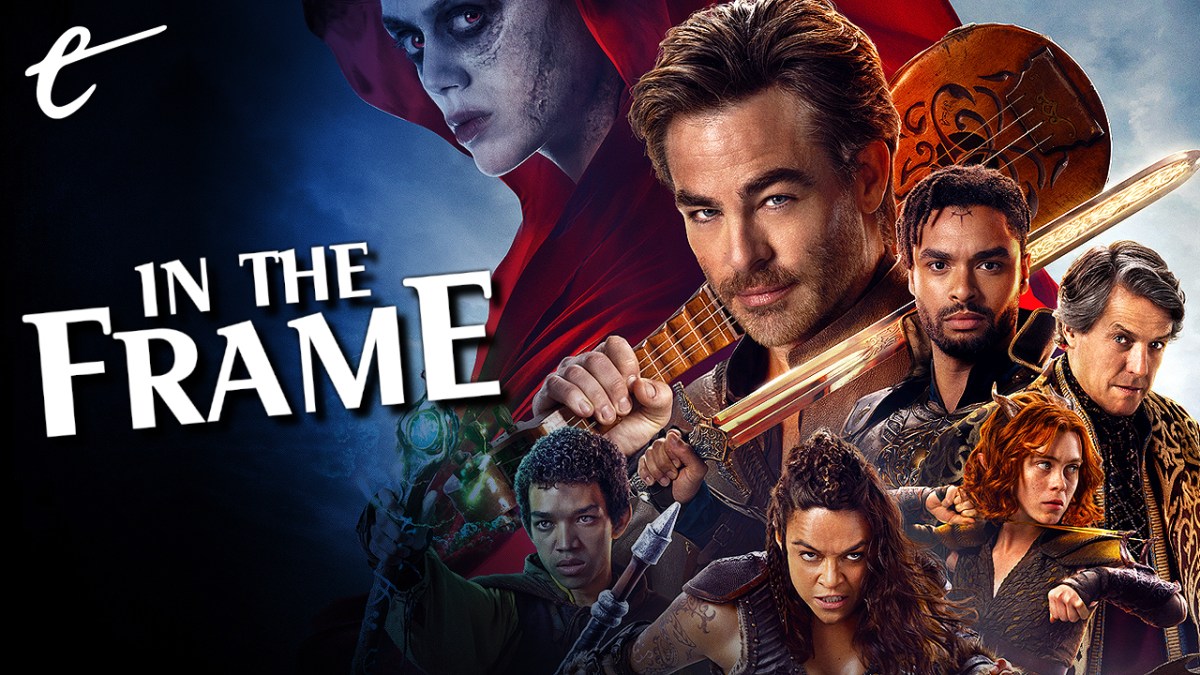




Published: Mar 31, 2023 11:00 am